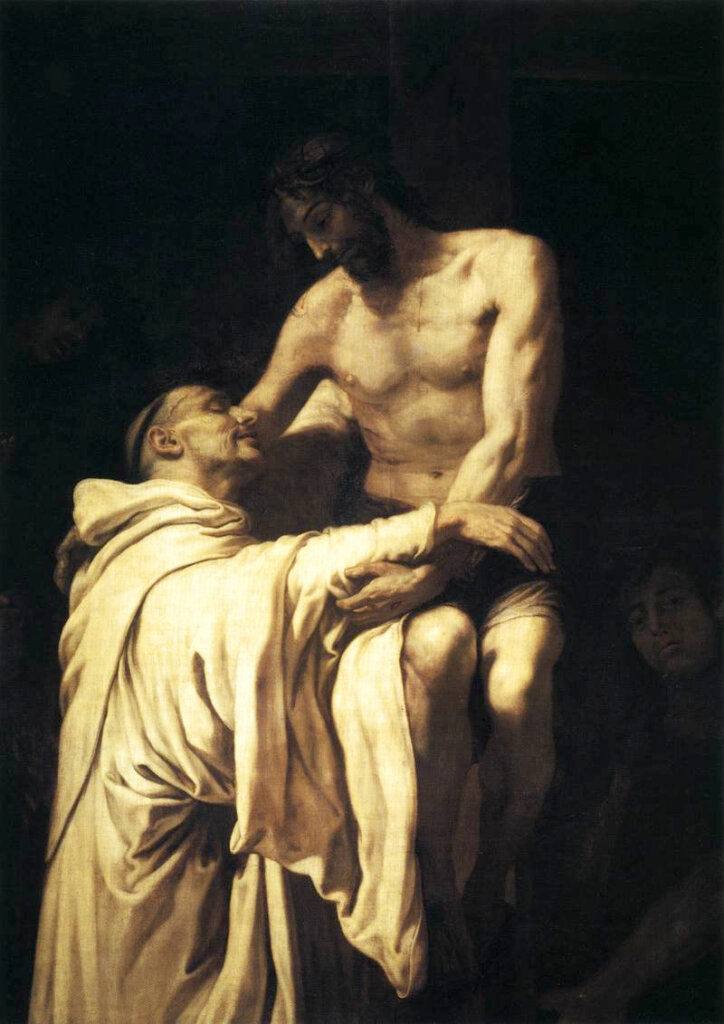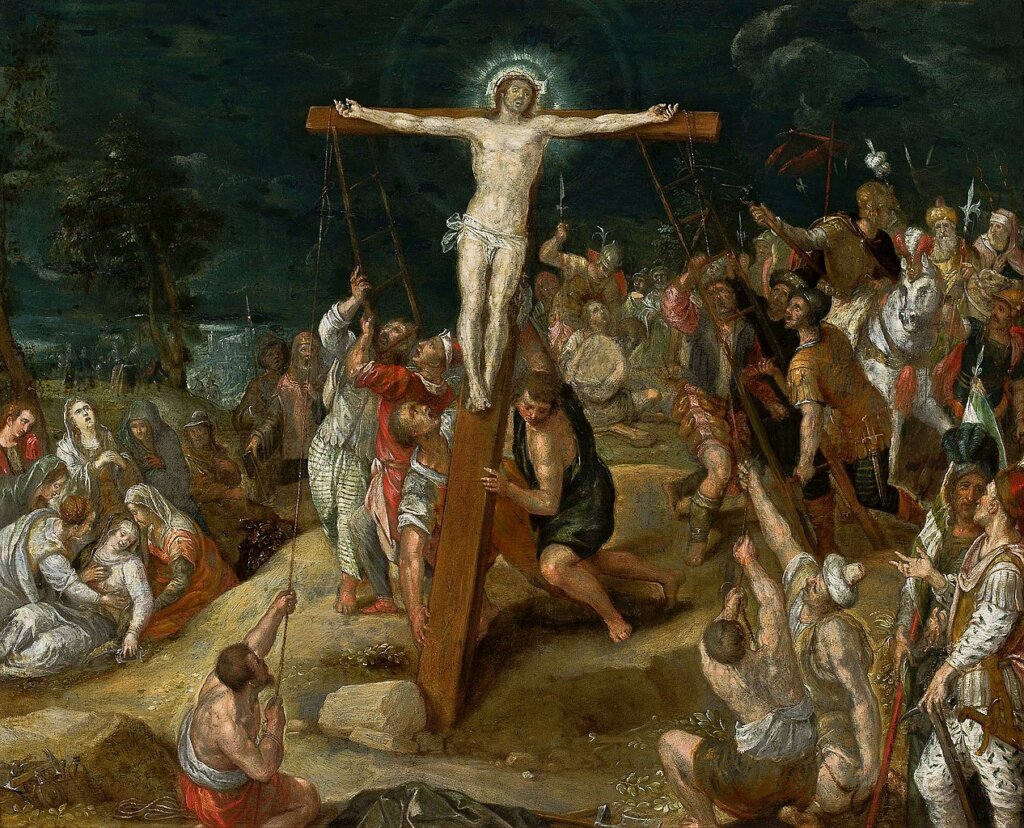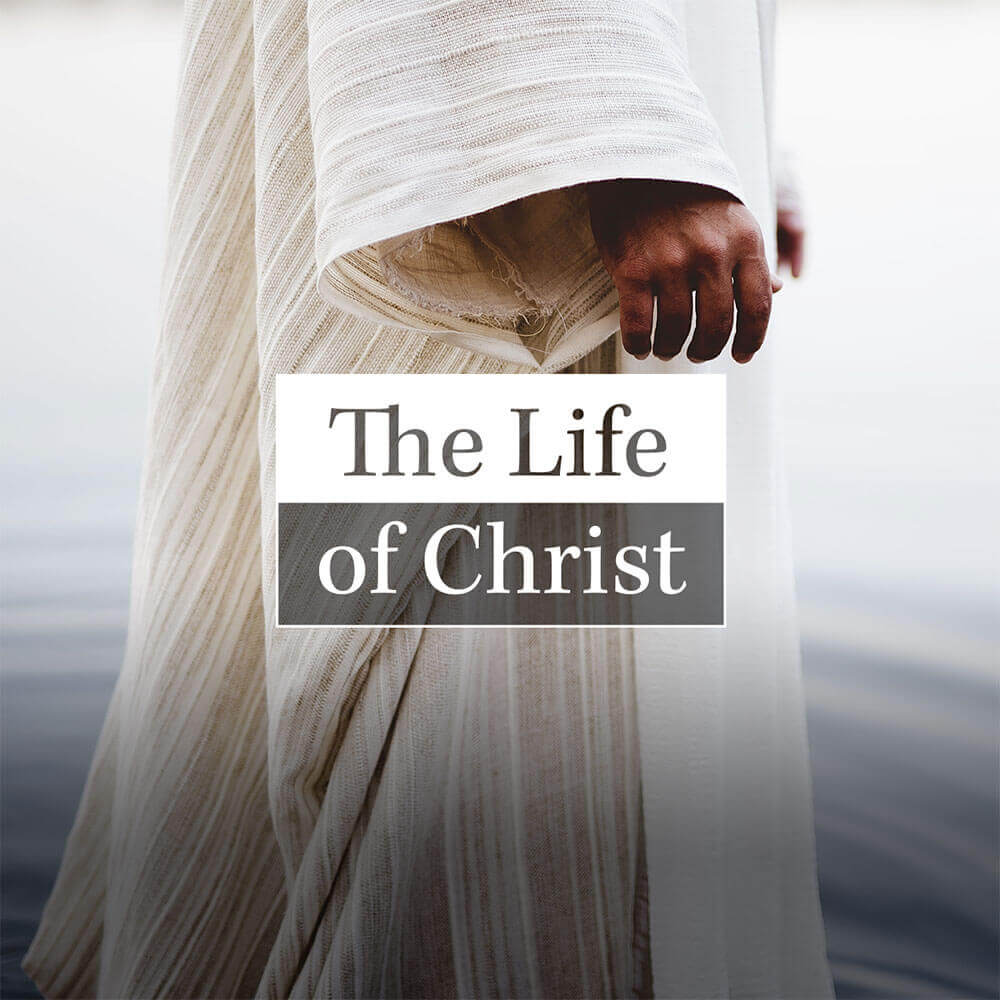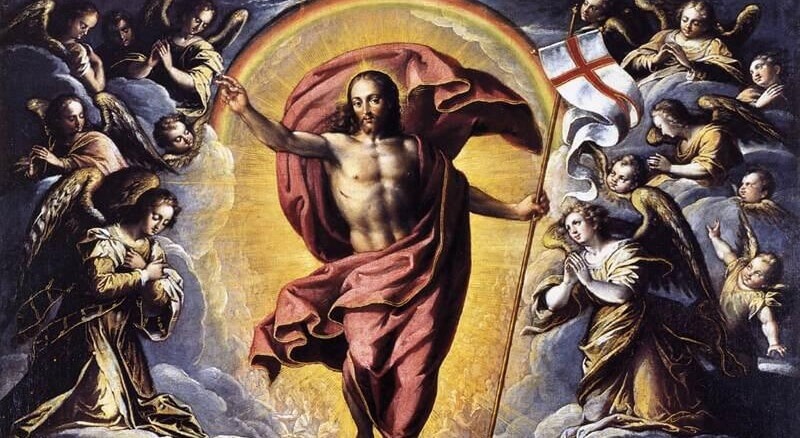
After this Jesus, knowing that all was now finished, said (to fulfil the scripture), “I thirst.”
John 19:28
So much is contained in these two short words, which constitute the fifth of the Seven Last Words of Christ.
While He was indeed suffering from torturous physical thirst, that isn’t the only thirst He is referring to here. Rather, He is expressing a longing of His Heart—a thirst of the spirit.
On the Cross, Jesus thirsted for love, for human love, for our love.
It seems impossible for God to thirst in such a way. After all, He does not need our love. He is Love Itself, existing eternally in a Trinitarian relationship of love. He has no need of anything His creatures could give Him.
And yet, in a certain mysterious sense, the God who is in need of nothing chose to “need” us. Our Lord, in His human nature, chose to experience human needs, chief among which is the need for love.
The Blood of the Soul

We all share this longing for love—it is what humans were made for, to love and to be loved.
It’s a need that’s never satisfied by anything but love. No amount of success, comfort, admiration, or material stuff can replace love. It’s the spiritual blood of our souls.
Just like the giving and receiving of physical blood is necessary for the functioning of a pumping heart muscle—it is the very thing the heart was designed for—love is needed in order to keep our souls alive and doing what they were designed to do.
This need can ultimately only be totally met by divine love, by God’s love. “Abide in my love,” Jesus said during the magnificent True Vine discourse in the Gospel of John (Chapter 15), directly before His Passion.
But human love is bound up with divine love—helps us experience it, learn it, and exercise it—and is otherwise a normal necessity of health and holiness. As Christ said during the same discourse: “This I command you, to love one another.”
Being deprived of human love is therefore necessarily dreadful. It would be unbearable if not for the certainty of God’s love. It is especially heart-wrenching when we are abandoned by those whom we have loved greatly, to whom we have done only good, or who by some natural relationship are obligated to love us.
With all this in mind, let us ponder again the thirst of Christ.
He Offered His “Whole House” for Love

In His human nature, Jesus thirsted for love just like we do. But the magnitude of this thirst is infinitely greater, because His love isn’t finite and variable like ours.
His love is infinite and eternal, and He holds back none of it from us. He loves us with a love beyond all telling and spared no effort to illustrate to us the depths of it. He became one of us, lived our toilsome life upon earth, taught us with His own words, healed us with His own hands, and suffered the fearful justice of God in our place.
All of it He did so that we would know His love and be inspired to love Him in return. He is truly the Man Who has offered His whole house for love and thought nothing of it, as recounted in that ode to divine love, the Song of Songs (8:7).
Indeed, it seems that His thirst was there from the beginning. It seems that the Incarnation itself was a product of it, in some strange, mysterious, outside-of-time way.
And it must be noted that Our Lord’s thirst is not a general one. It is particular and individual. Just as He died not for mankind in general, but for each human person in particular, so does He desire the love of each person in particular, of you, and of me.
It’s a thirst so deep and terrible that He vocalizes it in His last agony, a word of infinite longing and sorrow spoken once, but echoing through all time, in the ears of every human person.
He spoke it as He looked out not just on the jeering crowds of cruel Jerusalem, but across all the past and future ages of men, upon every individual, upon every response to His voice.
The Response

How would mankind respond? What did Christ see from the Cross as He looked for an answer to His cry?
Some hearts, He saw, would be pierced by this cry, loving Him in return with a love that is human and imperfect, but which brings Him indescribable consolation and relief.
Others would offer Him hate, seeing His suffering and mocking Him like those who passed by on Calvary, wagging their heads and insulting Him.
But a worse torment than the coldness of hate is the tepidity of those who would regard His love with indifference, who would see His love—a love which He made so visible and knowable—and yet walk away.
“What could I have done for thee, that I have not done?” He says through the Prophet Isaiah (see 5:4), in a passage that we hear during the Good Friday liturgy.
How could He have loved us more? What good thing could He have given that He did not? And to us—who do not deserve such things, who, as His creatures, owe Him love for His own sake!
On Calvary, those who stood near heard His physical cry, and rushed to give Him a drink—not of cool water, but of vinegar, a bitter and unpleasant draught.
Far more bitter to Him, though, was the silence His true thirst would meet in the hearts of such a vast majority of human souls. As the Psalmist foretold:
They gave me poison for food, and for my thirst they gave me vinegar to drink.
Psalm 69:21

Who are we, as Christ’s cry comes to our ears? How do we respond?
If you’re reading this, it’s likely that you are not in the second category—those who actively hate God. But who among us can say that we indeed belong to the first category—the ranks of those whose love never wanes?
As much as we strive to be lovers of Christ, most of us become tepid far too often and respond to His thirst with the gall and vinegar of our indifference.
Whether it’s Holy Week, Good Friday, or any day of the year, let us meditate on these words of Our Lord, upon the incomprehensible thirst of God—and our response to it.
How will you respond to the thirst of Christ on the cross?
How has He revealed this thirst in your own life?
Share your reflections with us in the comments below!






